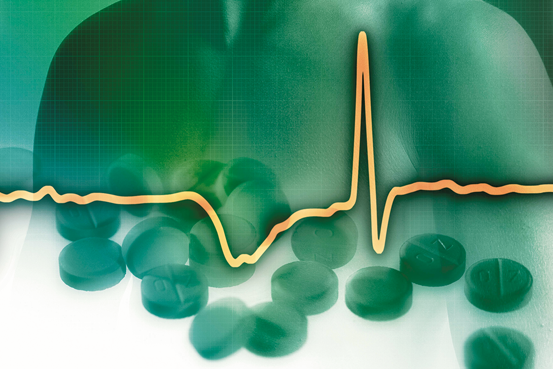
- Select a language for the TTS:
- UK English Female
- UK English Male
- US English Female
- US English Male
- Australian Female
- Australian Male
- Language selected: (auto detect) - EN
Play all audios:
Access through your institution Buy or subscribe Patients with atrial fibrillation (AF) and a recent acute coronary syndrome (ACS) or who have undergone percutaneous coronary intervention
(PCI) often receive both antiplatelet therapy (to prevent ischaemic events and stent thrombosis) and oral anticoagulants (to prevent stroke and systemic embolism). However, how to select the
best antithrombotic regimen for this patient population to minimize the risk of bleeding without compromising protection is an important unanswered question. Now, results from the AUGUSTUS
trial, presented at ACC.19, indicate that in this high-risk group of patients, a regimen that includes a P2Y12 inhibitor plus apixaban, at the dose recommended for stroke prevention, without
aspirin results in less bleeding and fewer hospitalizations, without significant differences in ischaemic events, than the use of regimens that include a vitamin K antagonist (VKA), aspirin
or both. Apixaban was both noninferior and significantly superior to VKA for the primary outcome of major or clinically relevant nonmajor bleeding. The primary outcome occurred in 10.5% of
patients in the apixaban group and in 14.7% of those in the VKA group, a 31% reduction in the relative risk of bleeding with apixaban (HR 0.69, 95% CI 0.58–0.81, _P_ < 0.001 for both
noninferiority and superiority). Analysis of the secondary outcomes indicated a 17% reduction with apixaban in the relative risk of death or hospitalization compared with the use of a VKA,
which was primarily driven by a reduction in all-cause hospitalization. The incidence of the composite of death and ischaemic events was similar in both groups. This is a preview of
subscription content, access via your institution ACCESS OPTIONS Access through your institution Access Nature and 54 other Nature Portfolio journals Get Nature+, our best-value
online-access subscription $32.99 / 30 days cancel any time Learn more Subscribe to this journal Receive 12 print issues and online access $209.00 per year only $17.42 per issue Learn more
Buy this article * Purchase on SpringerLink * Instant access to full article PDF Buy now Prices may be subject to local taxes which are calculated during checkout ADDITIONAL ACCESS OPTIONS:
* Log in * Learn about institutional subscriptions * Read our FAQs * Contact customer support REFERENCES ORIGINAL ARTICLE * Lopes, R. D. et al. Antithrombotic therapy after acute coronary
syndrome or PCI in atrial fibrillation. _N. Engl. J. Med._ https://doi.org/10.1056/NEJMoa1817083 (2019) Article PubMed Google Scholar FURTHER READING * Capodanno, D. et al. Aspirin-free
strategies in cardiovascular disease and cardioembolic stroke prevention. _Nat. Rev. Cardiol._ 15, 480–496 (2018) Article CAS PubMed Google Scholar Download references AUTHOR INFORMATION
AUTHORS AND AFFILIATIONS * Nature Reviews Cardiology http://www.nature.com/nrcardio/ Irene Fernández-Ruiz Authors * Irene Fernández-Ruiz View author publications You can also search for
this author inPubMed Google Scholar CORRESPONDING AUTHOR Correspondence to Irene Fernández-Ruiz. RIGHTS AND PERMISSIONS Reprints and permissions ABOUT THIS ARTICLE CITE THIS ARTICLE
Fernández-Ruiz, I. Tailoring antithrombotic strategies for high-risk AF populations. _Nat Rev Cardiol_ 16, 321 (2019). https://doi.org/10.1038/s41569-019-0195-0 Download citation *
Published: 01 April 2019 * Issue Date: June 2019 * DOI: https://doi.org/10.1038/s41569-019-0195-0 SHARE THIS ARTICLE Anyone you share the following link with will be able to read this
content: Get shareable link Sorry, a shareable link is not currently available for this article. Copy to clipboard Provided by the Springer Nature SharedIt content-sharing initiative








